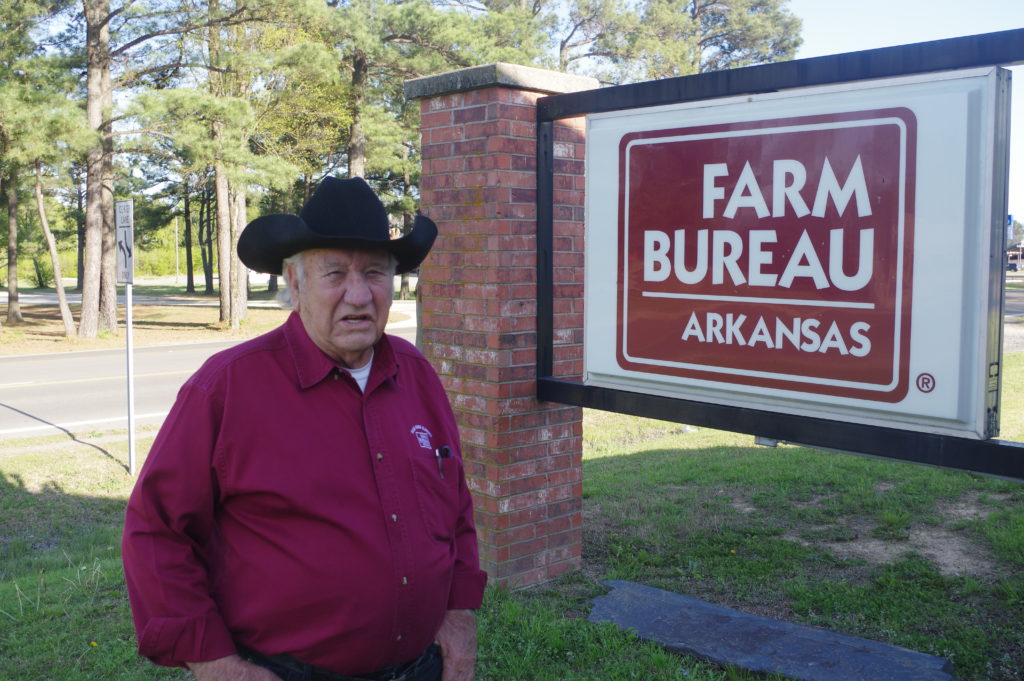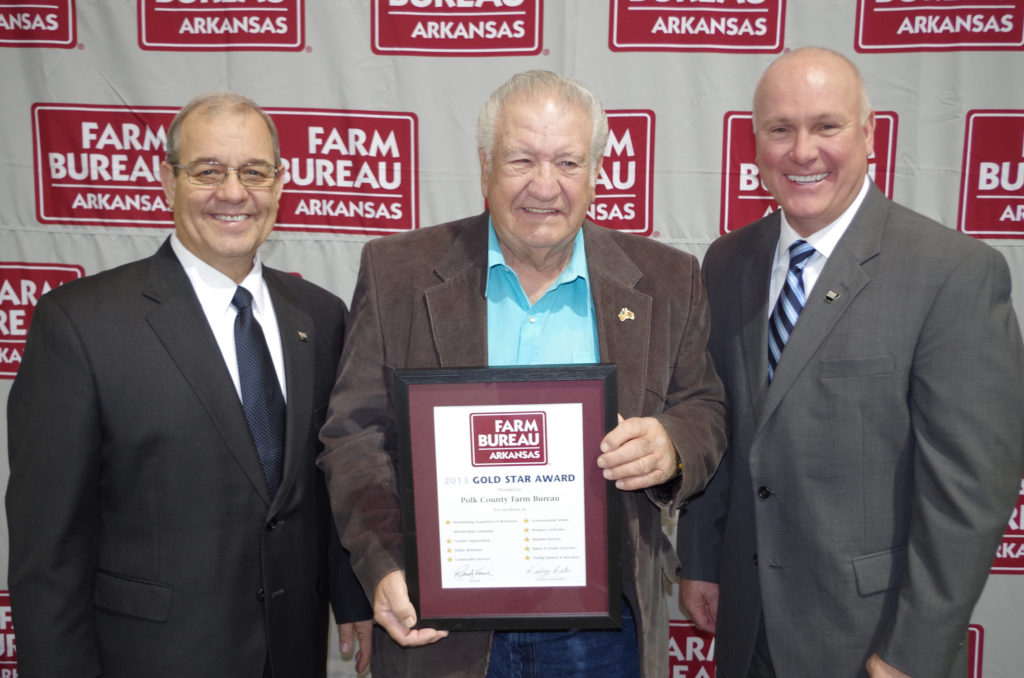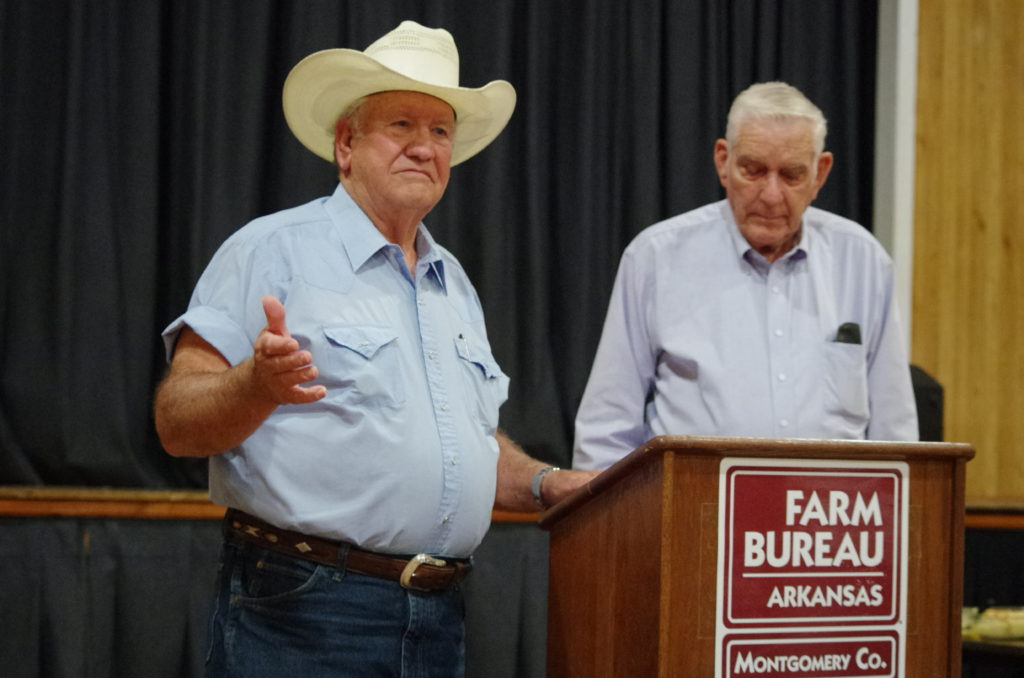
We recently sat down for a short Q & A with Allen Stewart, former Arkansas Farm Bureau board member and cattle and poultry farmer, on his ranch near Mena in Polk County. Stewart served 14 years on the ArFB board and continues to serve as president of Polk County Farm Bureau. Now 76-years-old, he reflects on his career and his service with Farm Bureau.
Q: Talk about your history as a life-long Arkansas cattleman and poultry farmer.
A: I’ve been raising cattle in Polk County since around 1966. I lived with my grandparents as a boy and grew up on a ranch. We ran cattle on an open range in western Oklahoma. After I served time in the Navy, I came back home and began acquiring cattle for myself. It’s been an ongoing way of life.
Q: In addition to your cattle operation, I understand you’ve raised broiler chickens as well.
A: In 1979, we built two poultry houses. We got into the poultry business because it went hand-in-hand with cattle. We raised chickens for 36 years because we needed the fertilizer for our pastures. This has been the norm on most cattle operations as ranchers need the manure from chicken houses to fertilize their grazing lands.”

Q: Along with other beef producers, you are providing an important protein source for consumers, not just here in the U.S. but in other countries around the world. That’s a big responsibility.
A: When I became active in Farm Bureau I began to see that agriculture was big all over the world. It allowed me to travel to Washington, D.C. and hear economists with American Farm Bureau and officials with USDA speak. I learned that keeping a level playing field with other countries for our commodities on the world market was very important. Many of them subsidize their farmers to produce beef and poultry and that made it hard for American producers to compete. In the United States we produce the safest and most affordable food in the world. I’m very proud to be a part of our food production system even though it’s been difficult at times competing with other countries who don’t have to follow the same standards we do.

Q: You understand the importance of service in Farm Bureau and have served on the state and county level for more than 30 years. Talk about how this has helped you as a person and a rancher.
A. Serving in Farm Bureau has always been important to me because it’s been a learning process. As beef producers in the beginning we were just out on our own but now there are programs that help us in raising and marketing our cattle. It also allowed me to gain an appointment to serve as chairman of the Rich Mountain Soil Conservation District in our county. I probably would not have had that opportunity if I’d not been on the Farm Bureau board. I also served on the Arkansas Beef Council. All of this taught me that we, as farmers and ranchers, must become more proactive in telling our story because there are so many people who don’t understand modern agriculture and want to put us out of business.
Farmers have got to tell their side of the story and educate people about our practices. That our animals are raised humanely and our food is safe. I have benefited from and learned so much from this organization. We have got to band together and encourage more younger farmers and ranchers to give of their time to serve as well. We are strong because we speak with one voice to advocate for this state’s largest industry. That’s more important now than ever.
